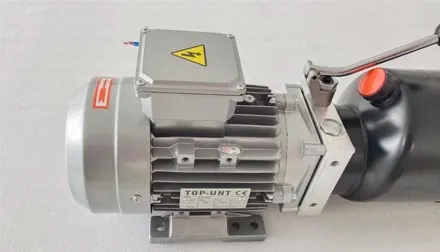Aug . 11, 2024 06:30 Back to list
Top-Quality Hydraulic Cylinders Essential for Efficient Sanitation Truck Performance and Longevity
High-Quality Hydraulic Cylinders for Sanitation Trucks A Key to Efficiency and Reliability
In the world of sanitation and waste management, the importance of reliable and efficient equipment cannot be overstated. Among the critical components of sanitation trucks are hydraulic cylinders, which play a vital role in the operation of these vehicles. High-quality hydraulic cylinders are essential for the effective functioning of sanitation trucks, ensuring that they can handle the demanding tasks associated with waste collection and disposal.
Hydraulic cylinders are devices that convert hydraulic energy into mechanical energy, providing the necessary force to lift, tilt, and compress waste bins. They serve as the backbone of the lifting mechanisms found in sanitation trucks, enabling them to perform heavy-duty operations with remarkable ease. The performance and longevity of sanitation trucks heavily depend on the hydraulic system, particularly the quality of the hydraulic cylinders used.
When discussing high-quality hydraulic cylinders for sanitation trucks, several key factors come into play. First and foremost is the material used in the construction of these cylinders. High-strength steel is commonly used, as it ensures durability and resistance to wear and tear. Additionally, the cylinders must be designed to withstand extreme pressure and loads, as they frequently operate under challenging conditions. This is where precision engineering and robust design become paramount.
Another critical aspect of high-quality hydraulic cylinders is their sealing technology. Effective seals prevent hydraulic fluid from leaking, which can lead to system failures and reduce overall efficiency. Advanced sealing materials and designs help to ensure that the cylinders operate smoothly and maintain optimal performance over time. Regular maintenance and inspections are also vital to preserving the integrity of hydraulic systems, extending the lifespan of the cylinders, and preventing costly repairs.
high quality hydraulic cylinder of sanitation truck

Moreover, the ability to customize hydraulic cylinders to meet specific operational needs further underscores their importance. Sanitation trucks may vary in size and function, from residential waste collection to industrial waste disposal. Therefore, manufacturers of hydraulic cylinders must work closely with sanitation providers to develop solutions tailored to their unique demands. This could include varying the stroke length, diameter, and pressure ratings of the cylinders to match specific applications.
Efficiency is another critical aspect affected by the quality of hydraulic cylinders. High-performance cylinders facilitate faster operations, enabling sanitation trucks to complete routes more quickly and with less downtime. This increased productivity not only enhances service delivery but also contributes to lower operational costs and reduced resource consumption. In an industry where efficiency is paramount, investing in high-quality hydraulic cylinders is an investment in overall operational success.
Furthermore, sustainable practices are becoming increasingly important in waste management. High-quality hydraulic cylinders can contribute to the sustainability goals of sanitation companies by enhancing fuel efficiency and reducing environmental impact. A well-maintained hydraulic system minimizes leakages and other failures, ensuring that sanitation trucks operate in an environmentally responsible manner.
In conclusion, high-quality hydraulic cylinders are indispensable components of sanitation trucks, directly influencing their performance, reliability, and efficiency. Their robust construction, advanced sealing technologies, and customization capabilities make them an essential investment for sanitation service providers. As the waste management industry evolves, embracing innovative solutions such as high-performance hydraulic cylinders will be crucial in meeting the demands of a growing population and fostering sustainable practices. By prioritizing quality in hydraulic components, sanitation companies can ensure effective waste management and enhance their service delivery, paving the way for a cleaner and more sustainable future.
-
1.5 Ton Flipping Oil Cylinder 70/82-40-217-720-Hebei Shenghan Hydraulic Machinery|Precision Hydraulic Cylinder,Custom Hydraulic Solutions
NewsAug.29,2025
-
1.5 Ton Flipping Oil Cylinder 70/82-40-217-720 | Hebei Shenghan Hydraulic Machinery Co., Ltd.
NewsAug.29,2025
-
High-Precision [90/105-50-180-480] Industrial Component | Durable & Reliable
NewsAug.27,2025
-
High-Performance Set of 50/60-45-290 471 | Durable & Reliable Components
NewsAug.26,2025
-
Efficient Pallet Truck Power Units - Reliable Hydraulic Systems
NewsAug.25,2025
-
Premium Set of 50/60-45-290 471 Parts | High Performance
NewsAug.24,2025
